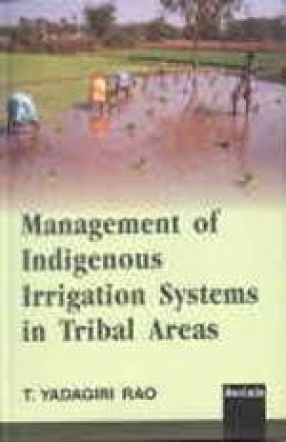Irrigation has multiple advantages to the economy and society. Entire mankind has survived on the availability of the water and its efficient forms of utilization. Effective control of irrigation systems and water distribution is supposed to contribute increased agricultural production by making possible planting at the optimal time, extending the effective cropping season and permitting in the process a switch to high productivity high value crops. Hence, irrigation both in terms of technique and structural process needs to be understood from the view point of higher level of productivity in agriculture. Contemporary importance of indigenous irrigation systems arises from the fact that the process of learning by modern technology has not been complete and its has resulted in several socio-political implications to the developing societies. The subjective orientation of irrigation experts towards their own experience and cumulatively developed a negative outlook and shown disinterest to learn from the experience of indigenous irrigation systems and practices. This work on indigenous irrigation systems point out that many organizational inadequacies in effective management of these systems; like irregularity of water supply, prolonged absence of the officials concerned, inadequate extension efforts to develop irrigation culture among the farmers and so on. It further focuses on existing gap between the farmers and the irrigation departments concerned have culminated into the loss of indigenity of the knowledge related to the efficient use of water resources. The present volume is most useful to the researchers, academicians and policy formulators interested in management irrigation systems in developing countries.
Management of Indigenous Irrigation Systems in Tribal Areas
In stock
Free & Quick Delivery Worldwide
reviews
Bibliographic information
Title
Management of Indigenous Irrigation Systems in Tribal Areas
Author
Edition
1st ed.
Publisher
Serials Publications, 2008
Length
viii+208p., Tables
Subjects





There are no reviews yet.